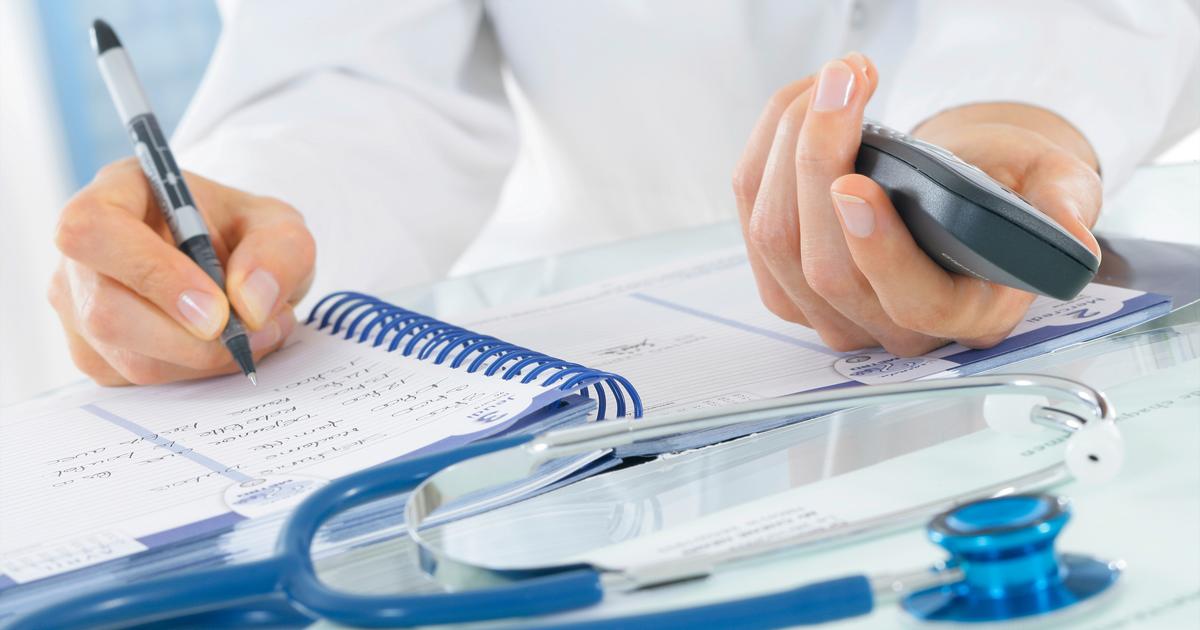Travel vaccinations and medical checkups often have to be paid for by yourself. A number of practices now also offer self-pay services for the coronavirus. What is it all about - and why do health insurance representatives warn against certain examinations?
Berlin (dpa) - Anyone who wants to be tested for the coronavirus without any particular reason usually pays themselves. The cash register jumps in even less often for an antibody test for the virus.
In almost all federal states, both studies are regarded as individual health care services, or IGeL for short - and thus a controversial category for which those with statutory health insurance spend around one billion euros annually.
The Medical Service of the Health Insurance Companies (MDS) warned that some additional services could not only be expensive, but even dangerous. "Two of the top sellers - intraocular pressure measurement for early detection of glaucoma and ultrasound of the ovaries - do more harm than good," said MDS managing director Peter Pick. These IGeL services contradict the recommendations of medical associations. Patients are often inadequately informed about risks and the consequences of false positives are high. Patients should know this:
- THAT'S ITS IGEL: Individual health services are additional, not absolutely necessary or not demonstrably promising services. They are often used for prevention or early detection. In principle, doctors can offer numerous such treatments in their practices. According to the health insurance companies' IGeL monitor, there are currently several hundred such services. Examples are breast ultrasound for targeted cancer screening, but also vaccinations for private trips.
- THE DECISION MAKERS: The Federal Joint Committee determines what has to be paid by the statutory health insurance companies. According to the law, these must be treatments that are "sufficient, appropriate, economical and do not exceed what is necessary". These health insurance benefits are not allowed to offer practices as IGeL. If the committee made up of representatives from clinics, doctors and health insurance companies rejects a medical procedure or has not yet decided on it, it is often offered as an IGeL.
- WHEN THE CASH PAYS STILL: Once the Federal Joint Committee has rejected a method as a cash benefit, the statutory health insurances may not pay it voluntarily. If, on the other hand, there has not yet been a decision on treatment, some health insurance companies may voluntarily cover the costs. Some offers become health insurance benefits even if there is a specific suspicion of illness. For example, if you have a fever and cold symptoms, you don't have to pay for the common corona test yourself. Likewise, certain professional groups - such as teachers, if someone from their school tested positive.
- CORONA TESTS AS IGELS: A so-called PCR test is used to detect corona pathogens. For this purpose, swabs are made in the airways, for example in the throat and bronchi. The tests are scientifically validated. In antibody tests, on the other hand, the blood is examined: The idea is that protective substances formed in the blood indicate a disease that has already been overcome. That is why the Robert Koch Institute does not recommend the tests for acute diagnosis. Both examinations depend on who pays. If a PCR test turns out negative despite past symptoms or if the doctor considers it necessary, the health insurance company will also cover the costs for an antibody test.
- THE REVIEW: The medical service, representing the statutory health insurance companies, classifies some of the IGeL treatments as potentially harmful. For example, he warns of a PSA test to detect prostate cancer. False positive results in healthy individuals could lead to invasive treatments.
The experts are also skeptical about the corona tests: If there is insufficient information about the meaningfulness of test results, patients could feel a false sense of security and disregard distance and hygiene rules.
The association demands that doctors should not put pressure on their patients to make use of voluntary services. But that is exactly what is often the case, criticizes Eugen Brysch, director of the German Foundation for Patient Protection. "Unexpected surprise and fueling fears are part of this business model." The individual benefit of the services is questionable. Brysch demands: "There must be a fourteen-day cooling off period between the doctor's offer and the provision of the service. If the deadline is not met, the patient can refuse to pay."
© dpa-infocom, dpa: 200825-99-302371 / 2
RKI to tests
Bavarian test strategy
Communication MDS







